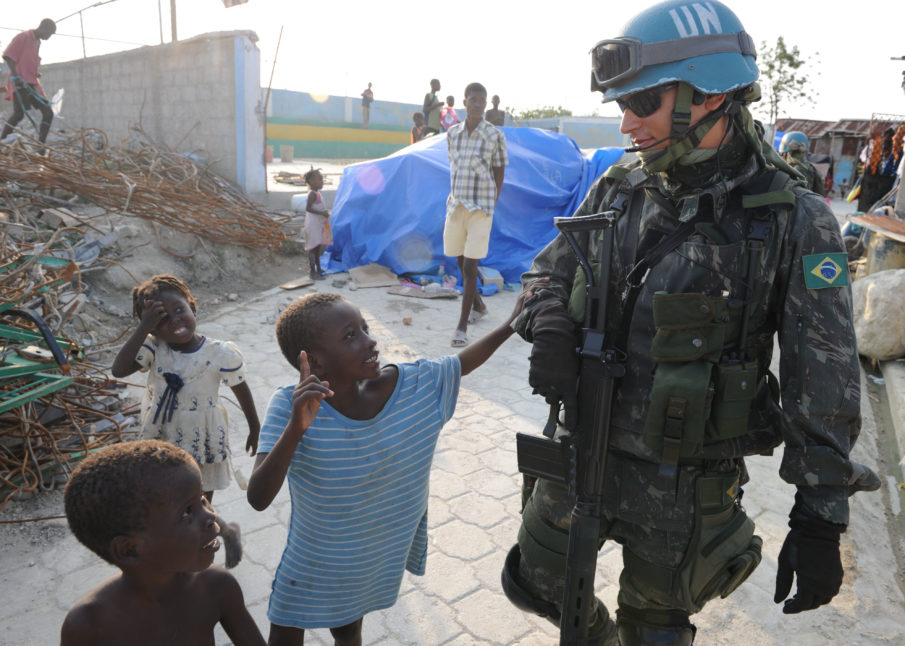Speaking at the 2017 U.N. Peacekeeping Defense Ministerial in Vancouver, Canada, Deputy Defense Secretary Patrick Shanahan said the U.S. will remain committed to peacekeeping operations, but will reduce its current financial commitment to such missions.
The United States remains the largest financial contributor and capacity-builder for peacekeeping missions. We currently provide more than 28 percent of assessed costs and have spent more than $1 billion training U.N. peacekeepers over the last decade,” Shanahan said, speaking to the conference of over 500 participants from 80 countries. “We will continue to provide a quarter of all costs into the future. Peacekeepers, tasked with jobs that put their lives at risk, must be well-trained, led and supplied.”
“The United States is recommitting itself to improving U.N. peacekeeping leadership, accountability and performance.” He said. Shanahan was not alone in his calls for refocusing on reforming the United Nations peacekeeping apparatus. Other officials identified problems that have plagued peacekeeping operations like sexual abuse of women and children, among other misconduct.
“Difficult environments do not excuse poor performance or bad behavior,” Shanahan said. “Misconduct by troops or police on [U.N.] missions is a symptom of leadership failure.”
The U.N. currently conducts peacekeeping operations in 15 locations around the world, half of which are in Africa.
The 3-percent reduction in funding has been announced previously. President Trump has made his criticisms of the United Nations well-known, tweeting last December “The United Nations has such great potential but right now it is just a club for people to get together, talk and have a good time. So sad!”
U.S. Ambassador to the U.N. Nikki Haley has echoed similar comments about the need to reform peacekeeping missions, saying on Twitter earlier this summer “Just 5 months into our time here, we’ve cut over half a billion $$$ from the UN peacekeeping budget & we’re only getting started.”
In a Congressional subcommittee hearing where she identified the goal to reduce peacekeeping contributions to 25%, she said “I have seen value in the U.N.” and “at the same time the U.N. has fat around the edges.”
According to the Hill, in 2016 the United States gave $2.2 billion to the U.N. for peacekeeping operations, more than all contributions of the next three contributors, China, Japan, and Germany, combined.
The stated goals of the 2017 Peacekeeping conference included “encouraging new pledges from member states; advancing peacekeeping reforms; and fostering pragmatic and innovative solutions to peacekeeping.”
Image courtesy of the U.S. Navy
Already have an account? Sign In
Two ways to continue to read this article.
Subscribe
$1.99
every 4 weeks
- Unlimited access to all articles
- Support independent journalism
- Ad-free reading experience
Subscribe Now
Recurring Monthly. Cancel Anytime.











COMMENTS